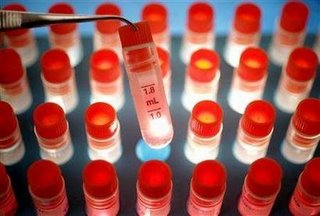A law professor in Minneapolis has recently become an "outlaw" in the eyes of some. Her crime? She chose not to have an abortion when she received a prenatal diagnosis of Down syndrome. Elizabeth Schiltz had her baby anyway, and writes about her experience in Defiant Birth: Women Who Resist Medical Eugenics (2006, Spinifex Press). She also tells of other women who have faced severe pressure to abort because they were carrying a less-than-perfect baby.
Modern technologies have created a crisis of too much information. From the older methods of amniocentesis and chorionic villus sampling, to more recent techniques for preimplantation genetic screening of embryos, women have more reasons not to have their babies than ever before. It is well known that almost 50% of fertility centers now permit screening of embryos for gender, with the “wrong” sex discarded. Many centers are able to eliminate the carriers of certain genetic traits, some of which have little or nothing to do with disease.
Primplantation genetic diagnosis, or its modern cousin, preimplantation genetic haplotyping, can now screen embryos for 6,000 different diseases. This has led Professor Schiltz to remark, “I can't help but see 6,000 new reasons that parents will be branded as sinners or made to feel socially irresponsible for bringing their children into this world.”
What the eminently quotable James Russell Lowell has said about mishaps is surely true of modern biotechnologies: they are like knives that either serve us or cut us, as we grasp them by the blade or by the handle. The ultimate victim of all this will be human nature, sacrificed on the altar of our desire for perfection.
For more about Elizabeth Schiltz: http://www.businessweek.com/technology/content/jul2006/tc20060720_148057.htm
Sunday, September 24, 2006
Sunday, September 10, 2006
A New Idea in Stem Cell Research?
 It was too good to be true. A recent report from Reuters documents a new technique that produces early stem cells, but without destroying embryos. But the devil is in the details.
It was too good to be true. A recent report from Reuters documents a new technique that produces early stem cells, but without destroying embryos. But the devil is in the details.As I discussed in my July 30th post, destroying embryonic humans for the supposed betterment of others violates long-held ethical standards against the taking of innocent lives. Since those who honor the sanctity of life from conception have made so much ethical fuss, scientists have been searching for other ways to produce early stem cells. Would it be possible to remove one or two cells from an embryo for this purpose, but not destroy it?
The new "breakthrough" is actually a modification of a technique that has been around for awhile. The older technique, called preimplantation genetic diagnosis (PGD), samples a single cell from an early (three-day-old) eight-cell embryo. In the past, a genetic analysis would be performed on the extracted cell to determine the fitness of the embryo for implantation into a woman's womb. Certain serious genetic diseases would result in rejection of the embryo.
The new idea is to use PGD technology to remove a single cell from a three day-old embryo to use as a starter cell for a stem cell line, leaving the embryo intact to be implanted later. Would this be an ethically acceptable way to produce embryonic stem cells?
First of all, I applaud the idea of research that attempts to avoid destroying life. Yet it is hard to imagine what good accrues to the embryonic humans involved. In other words, here is a potentially harmful procedure for which the embryos cannot give their consent, that does not benefit them in any way. This violates the principle of informed consent in research.
Furthermore, it turns out that the whole thing has been misrepresented. The research report, which appeared in the scientific journal Nature, did not accurately report the facts. Since it was a procedure performed in the laboratory, "none of the embryos was implanted and in fact several were destroyed. And no cell lines were created from single cells, but instead created by incubating several cells together." In other words, they did not accomplish what they claimed to have accomplished: an ethical way to produce embryonic stem cells.
It's bad enough when scientists want no restraints on research that many find ethically problematic, but then to distort their findings to assuage ethical criticsm seems like the height of hypocrisy. Stem cell researchers must do better.
Photo and Reuters News report from: http://news.yahoo.com/s/nm/20060906/pl_nm/science_stemcells_dc_2
Subscribe to:
Comments (Atom)
